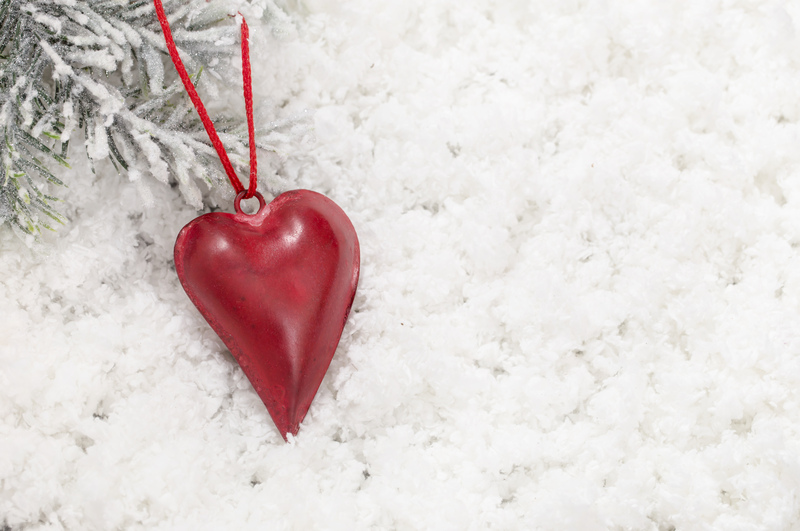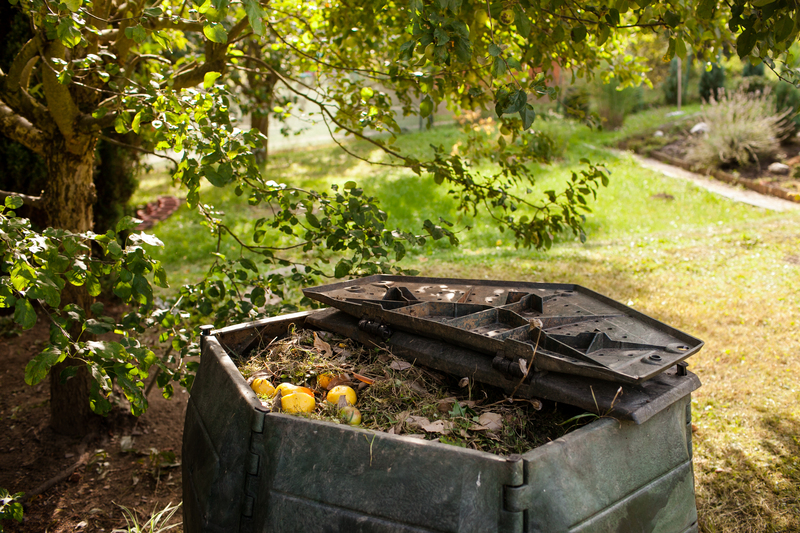Turning Metal into Gold: The Value of Recycling Pots and Pans
Introduction: Uncovering the Hidden Treasure in Kitchenware
Have you ever wondered what happens to your old pots and pans once they've outlived their usefulness in the kitchen? Most of us simply toss these items away, not realizing that recycling cookware can transform what seems like worthless clutter into valuable resources. This process, metaphorically turning metal into gold, not only helps the environment but also saves money, conserves energy, and supports local economies.
In this article, we will delve into the vast value of recycling old pots and pans, explore how it contributes to a sustainable future, and provide actionable steps for responsible disposal. Discover why that battered skillet or worn-out saucepan is far more valuable than you think!

The Environmental Impact of Kitchenware Waste
The Current State of Metal Waste
The average household discards numerous kitchen items each year, including pots, pans, and baking sheets. Globally, this adds up to millions of tons of metal waste annually. Sadly, much of it ends up in landfills, where it can take centuries to decompose.
- *Contributes to soil and water pollution*
- Wastes precious metals like aluminum, copper, and stainless steel
- Consumes valuable landfill space
Instead of letting them become environmental hazards, recycling used pots and pans ensures these metals are reintroduced into the manufacturing cycle, reducing the need for new resource extraction.
The Resource-Intensive Process of Making New Metal
Producing metals from raw ores is a resource-heavy process involving mining, transport, and energy-intensive smelting. This:
- Emits greenhouse gases
- Requires vast amounts of water and electricity
- Damages natural habitats
By choosing to recycle cookware instead of discarding it, you're helping conserve energy and cut down on harmful emissions.
Why Recycling Pots and Pans Is Crucial
From the Landfill to the Market: The Journey of Recycled Metals
*Old pots and pans* are typically made of aluminum, steel, copper, or a combination of metals. These materials are highly recyclable and can be repurposed in various industries--sometimes indefinitely without losing quality.
- Aluminum can be recycled into car parts, window frames, and new cookware.
- Steel is reused in construction beams, appliances, or even new pans.
- Copper, a precious metal, is in high demand for electrical wiring and plumbing.
Economic Advantages of Kitchenware Recycling
Recycling metal kitchenware gives more than an environmental payoff; it's also highly economical. Manufacturing goods from recycled metals consumes significantly less energy than processing raw ore. To put it in context:
- Recycling aluminum uses 95% less energy than producing it from bauxite ore.
- Steel recycling conserves up to 60% of the energy required for primary production.
What's more, recycling supports jobs in waste management, transport, and the recycling industry--stimulating local economies and fostering innovation.
The Symbolic Value: Turning Metal into Gold
The phrase "turning metal into gold" dates back to ancient alchemy, where the goal was literal transmutation. In our modern context, when you recycle pots and pans, you're metaphorically turning an old, unwanted item into something invaluable--a cleaner planet, job opportunities, and sustainable industrial growth. It's a transformation that has real-world impact.
How to Recycle Pots and Pans Effectively
Determining What Can Be Recycled
Not all cookware is created equal. When planning to recycle your pots and pans, consider these factors:
- Is there a non-metal component like plastic handles or glass lids?
- Is the pan nonstick, coated with materials like Teflon?
- Are there composite layers or mixed metals?
*Many recycling centers accept pans made from pure metals*, but those with nonstick coatings or multiple materials may require special handling.
Preparation Steps Before Recycling
To maximize your recycling success:
- Remove plastic handles or rubber parts.
- Separate glass lids and recycle them through appropriate glass programs.
- Clean off excess food residue to avoid contaminating other recyclables.
If the item has a nonstick coating, check with your municipal recycling facility for guidelines, as not all centers accept Teflon-lined pans.
Where to Recycle Old Pots and Pans
*Don't just toss them in your curbside bin!* Here's where to handle them responsibly:
- Local scrap metal yards - Most take all-metal pans.
- Community recycling centers - Some have special bins for small appliances and cookware.
- Charity thrift stores - If your pans are still usable, donate them for resale.
- Retail take-back programs - Select retailers offer recycling for used kitchenware during special events.
For specific disposal guidance, search "recycle pots and pans near me" or check your city's waste management website.
Creative Alternatives: Giving Old Cookware New Life
Before recycling, consider creative reuse options. *Upcycling* old pots and pans can extend their functional life:
- Convert a saucepan into a plant pot.
- Turn a skillet into a quirky wall clock.
- Use lids as serving trays or candle holders.
Not only does upcycling reduce waste, it can lend a personal, artistic flair to your home!
The Global Impact of Recycling Kitchen Metals
Saving Resources, Protecting the Planet
Recycling kitchenware on a large scale brings powerful benefits. For every ton of metal recycled:
- Up to 2 tons of raw ore are conserved.
- Significant reductions in air and water pollution are achieved.
- *Greenhouse gas emissions drop dramatically,* fighting climate change.
It's a ripple effect--all from the simple act of recycling used pots and pans.
Industry Shifts: The Demand for Recycled Metals
Industries around the world are increasingly prioritizing recycled materials. For instance:
- Cookware brands are launching eco-friendly product lines that use recycled metals.
- The automobile, construction, and tech sectors rely on scrap metal to meet sustainability goals.
As consumer demand grows for ethical, recycled products, *recycling pots and pans* directly supports the shift towards a circular economy--where waste is minimized and resources are constantly reused.
Common Myths About Recycling Pots and Pans
Myth 1: **Pots and pans are too small to recycle.**
Truth: Metal is valuable at any size. As long as the cookware is mostly metal, it can be processed and remade into new products. Even bits of old handles or screws will be sorted during recycling.
Myth 2: **Nonstick pans can't be recycled.**
While nonstick coatings complicate recycling, *some centers have methods to remove or safely handle these materials*. It's worth asking your local facility or researching specialized recycling programs.
Myth 3: **Recycling kitchenware isn't worth the effort.**
Recycling a single aluminum pan saves enough energy to power a light bulb for hours. Multiply this by millions of pans, and the energy savings are enormous!
Tips for Sustainable Kitchen Habits
Recycling old cookware is only part of the journey. To further support sustainability:
- Invest in durable, high-quality pans that last longer and reduce replacement frequency.
- Opt for brands that use recycled metals in their products.
- Avoid disposable or single-use cookware when possible.
- Reuse or repurpose damaged kitchen items whenever feasible.
*Your daily choices can add up to a significant environmental difference!*
Conclusion: Your Role in Turning Metal into Gold
Recycling pots and pans is a simple yet powerful action that yields far-reaching results.
- You help preserve natural resources.
- You reduce pollution and greenhouse gas emissions.
- You support sustainable businesses and recycling jobs.
- You join a global movement toward a cleaner, greener future.

Frequently Asked Questions (FAQ) on Recycling Pots and Pans
Can all types of cookware be recycled?
Most all-metal cookware is recyclable, while nonstick, glass, and ceramic items need special disposal. Always check with your local recycling center for specific guidelines.
What should I do with broken pots and pans?
Recycle them at a metal scrap facility or municipal recycling center. If they contain plastic or glass, separate these parts first to ensure proper processing.
Are there any retailers that recycle old cookware?
Some retailers, such as certain houseware stores, occasionally host take-back programs. Check their websites or inquire in-store for upcoming recycling events.
What is upcycling, and how does it differ from recycling?
Upcycling means creatively reusing a product to extend its life in a new way--like using a frying pan as a flower pot. Recycling involves breaking down the metal to make new products.
How can I encourage my community to recycle kitchenware?
Start by spreading awareness, organizing collection drives, or working with local officials to establish or expand metal recycling programs. Your actions can inspire others!
Further Reading and Resources
By prioritizing the recycling of old pots and pans, you become a catalyst for positive change. Let's continue turning our everyday metal waste into something truly valuable--gold for our communities and our planet.